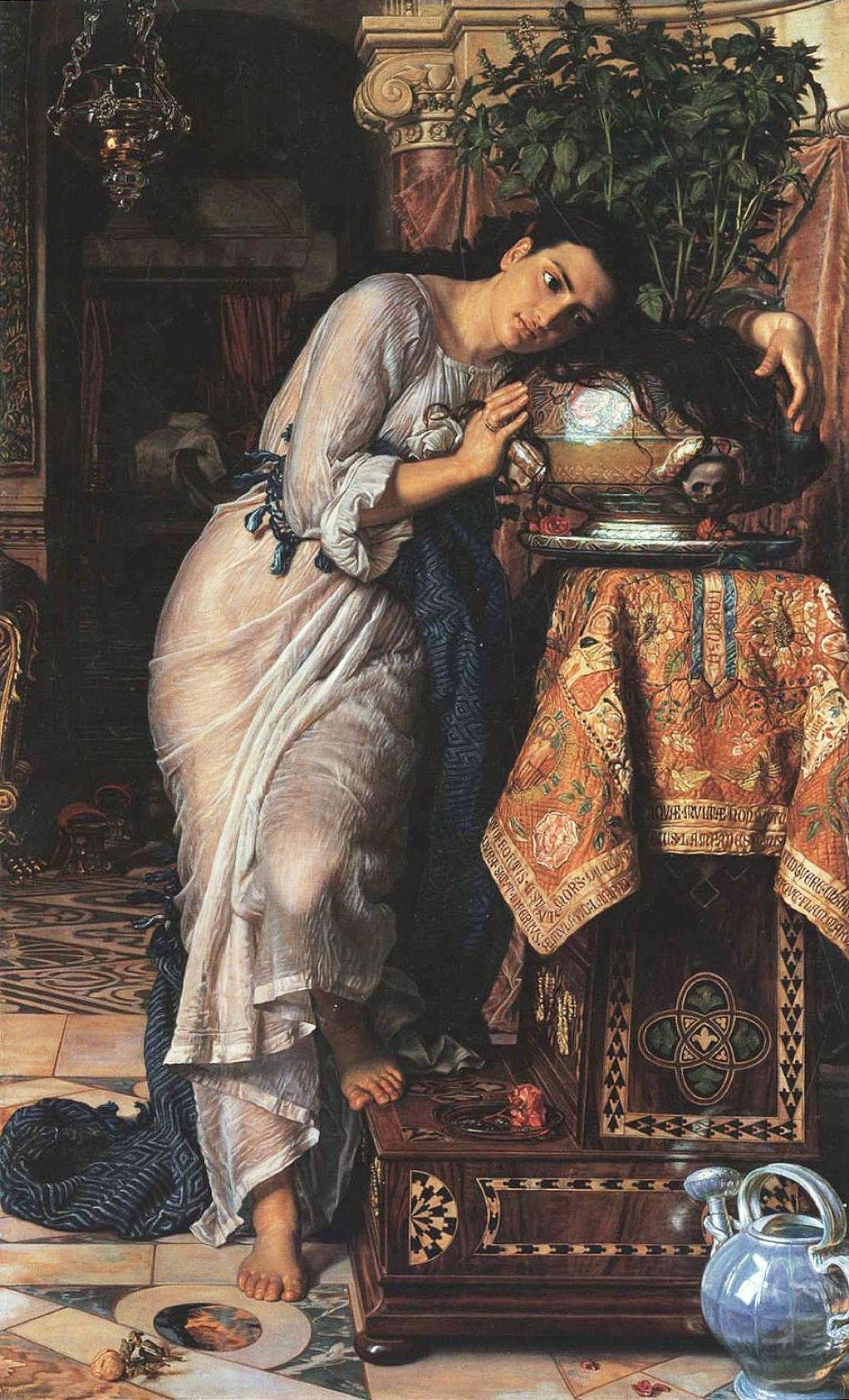The Flowerpot’s Grisly Secret: Love, Loss, and Lisabetta’s Basil

Introduction
When you think of medieval literature, you might picture knights, plagues, or endless sermons. But Giovanni Boccaccio’s The Decameron flips that expectation. It’s witty, bold, and often surprisingly modern. One story that really stood out to me was the tale of Madonna Filippa from Day 6, Story 7. In this post, I’ll break down how she used her intelligence and confidence to challenge a sexist law—and why her story still feels fresh today
Summary
Madonna Filippa is caught cheating on her husband, and under the law of her city, that means one thing: execution. But instead of panicking or denying it, she shows up to court and delivers a killer speech (pun intended). She admits to the affair—but then questions the fairness of a law that punishes women so harshly while letting men off the hook. The townspeople are so impressed with her honesty and logic that they not only let her go—they actually change the law.
Analysis
There’s a lot to love about this story. First, Madonna Filippa doesn’t play the victim. She’s smart, calm, and persuasive. Her speech isn’t just about saving her own life—it’s about pointing out how ridiculous and unequal the system is. That’s a pretty radical move, especially for a woman in 14th-century Italy.
The humor in the tale is another highlight. Boccaccio doesn't mock Filippa—he mocks the legal system and the men who blindly enforce it. He uses irony to spotlight the hypocrisy in society, and Filippa becomes the sharpest voice in the room. It’s a classic Decameron move: turning the expected power dynamics upside down using clever dialogue and unexpected logic.
Personal Response
What surprised me most is how much this story still resonates. We’re still talking about double standards, gender roles, and how laws often reflect outdated values. Filippa’s calm defiance reminded me of modern activists and public figures who use words—not weapons—to change the world.
Also, let’s just say it: it’s fun to read a story where the woman wins with style. No drawn-out tragedy, no punishment for speaking out—just one well-delivered argument that flips the script.
Conclusion
The tale of Madonna Filippa is short, funny, and way more relevant than you’d expect from a 700-year-old story. It’s a great example of how Boccaccio used storytelling to challenge the status quo and celebrate sharp minds—especially when they belong to women. If you think medieval lit has nothing to say about today’s world, let Filippa prove you wrong.







